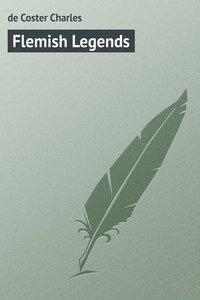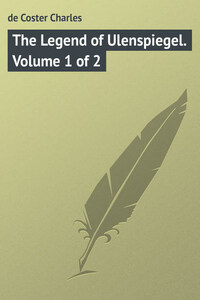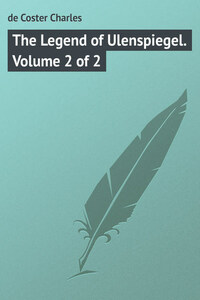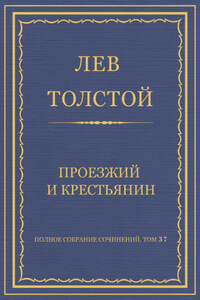I. Of the sorrowful voice which Pieter Gans heard in his garden, and of the flame running over the grass
In the days when the Good Duke ruled over Brabant, there was to be found at Uccle, with its headquarters in the tavern of The Horn, a certain Brotherhood of the Cheerful Countenance, aptly enough so named, for every one of the Brothers had a wonderfully jolly face, finished off, as a sign of good living, with two chins at the least. That was the young ones; but the older ones had more.
You shall hear, first of all, how this Brotherhood was founded:
Pieter Gans, host of this same Horn, putting off his clothes one night to get into bed, heard in his garden a sorrowful voice, wailing: “My tongue is scorching me. Drink! Drink! I shall die of thirst.”
Thinking at first that it was some drunkard below, he continued to get into bed quietly, notwithstanding the voice, which kept crying out in the garden: “Drink! Drink! I shall die of thirst.” But this persisted so long and in so melancholy a manner that at last Pieter Gans must needs get up and go to the window to see who it might be making so much noise. Thence he saw a long flame, of great brightness and strange upstanding shape, running over the grass; and, thinking that it must be some poor soul from purgatory in need of prayers, he set about repeating litanies, and went through above a hundred, but all in vain, for the voice never ceased crying out as before: “Drink! Drink! I shall die of thirst.”
After cock-crow he heard no more, and looking out again he saw with great satisfaction that the flame had disappeared.
When morning came he went straightway to the church. There he told the story of these strange happenings to the priest, and caused a fair mass to be said for the repose of the poor soul; gave a golden peter to the clerk so that others might be said later, and returned home reassured.
But on the following night the voice began its wailing anew, as lamentably as if it were that of a dying man hindered from dying. And so it went on night after night.
Whence it came about that Pieter Gans grew moody and morose.
Those who had known him in former days, rubicund, carrying a good paunch and a joyous face, wont to tell his matins with bottles and his vespers with flagons, would certainly never have recognized him.
For he grew so wizened, dried up, thin, and of such piteous appearance that dogs used to start barking at the sight of him, as they do at beggars with their bundles.
II. How Jan Blaeskaek gave good counsel to Pieter Gans, and wherein covetousness is sadly punished
It so happened that while he was moping after this fashion, passing his days in misery and without any joy of them, alone in a corner like a leper, there came to the inn a certain Master Jan Blaeskaek, brewer of good beer, a hearty fellow, and of a jovial turn of mind.
This visitor, seeing Pieter Gans looking at him nervously and shamefacedly, wagging his head like an old man, went up to him and shook him: “Come,” said he, “wake up, my friend, it gives me no pleasure to see thee sitting there like a corpse!”
“Alas,” answered Pieter Gans, “I am not worth much more now, my master.”
“And whence,” said Blaeskaek, “hast thou gotten all this black melancholy?”
To which Pieter Gans made answer: “Come away to some place where none will hear us. There I will tell thee the whole tale.”
This he did. When Blaeskaek had heard to the end he said: “’Tis no Christian soul that cries in this manner, but the voice of a devil. It must be appeased. Therefore go thou and fetch from thy cellar a good cask of ale, and roll it out into the garden, to the place where thou didst see the flame shining.”
“That I will,” said Pieter Gans. But at vespers, thinking to himself that ale was precious stuff to set before devils, he put instead in that place a great bowl of clear water.
Towards midnight he heard a voice more sorrowful than ever, calling out: “Drink! Drink! I shall die of thirst.”
And he saw the bright flame dancing furiously over the bowl, which was suddenly broken with a loud report, and this in so violent a manner that the pieces flew up against the windows of the house.
Then he began to sweat with terror and weep aloud, saying: “Now ’tis all over, dear God, all over with me. Oh, that I had followed the advice of the wise Blaeskaek, for he is a man of good counsel, of excellent counsel! Master Devil, who are so thirsty, do not kill me to-night; to-morrow you shall drink good ale, Master Devil. Ah, ’tis ale of fair repute throughout the land, this ale, fit for kings or for good devils like yourself!”
Nevertheless the voice continued to wail: “Drink! Drink!”
“There, there! Have a little patience, Master Devil; to-morrow you shall drink my best ale. It cost me many a golden peter, my master, and I will give you a whole barrelful. Do you not see that you must not strangle me to-night, but rather to-morrow if I do not keep my word.”
And after this fashion he wept and cried out until cock-crow. Then, finding that he was not dead, he said his matins with a better heart.










